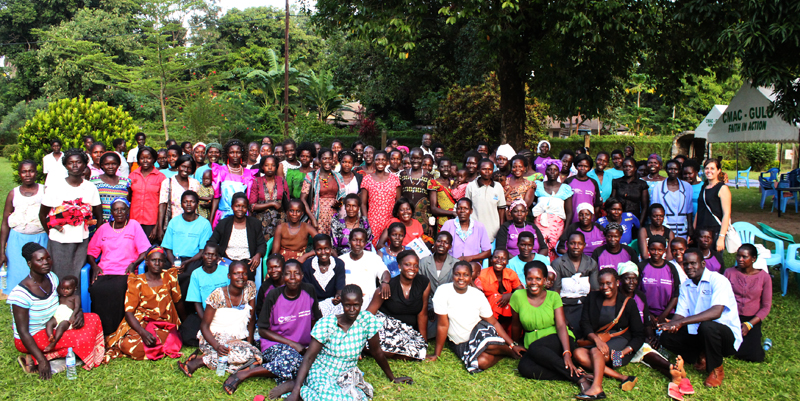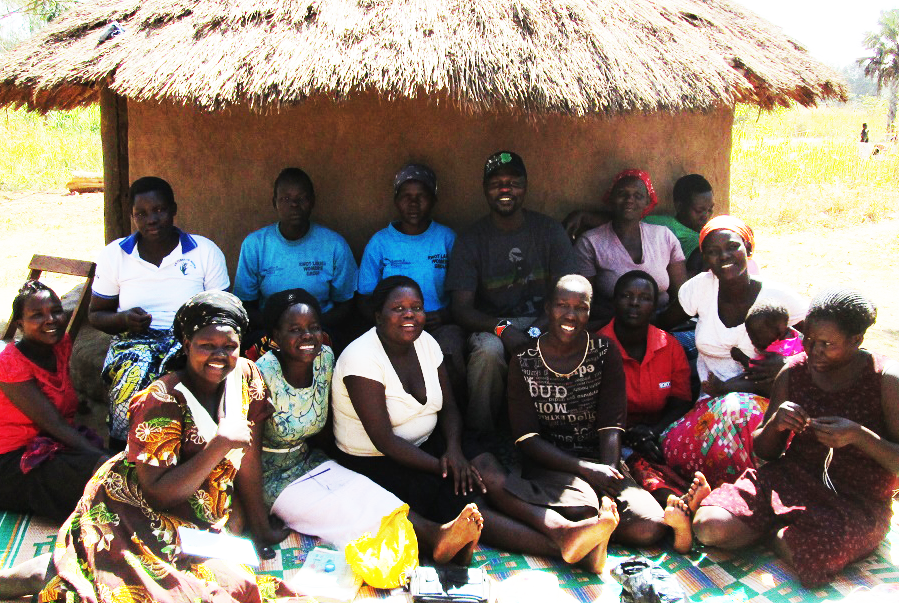As the year 2015 come to an end, more than 100 members of the Women’s Advocacy Network (WAN) held their annual general meeting at Comboni Animation Centre from 17th to 18th November 2015 to review the year and discuss plans for 2016. The two day meeting was attended by members from all over northern Uganda to discuss the success and challenges of the WAN.
The meeting was guided by questions such as: what has been done? What has not been done yet? What needs to be done? What is the future of WAN?
The meeting began with an opening prayer by participant members from Can Rwede Pe Women’s Group. After this, the WAN chairperson listed the successes the WAN has achieved in 2015. These included opening a WAN bank account and medical services being secured for people with fragments of bullets still in their bodies. The WAN has alsoregistered in Gulu district as a community-based organisation (CBO), conducted child tracing and family reunification processes, and admitted three new groups from Adjumani, Pader and Lira districts.
The meeting informed participants about some of the pending tasks including following up on the petition WAN made to parliament in 2014, advocating to ensure the needs of war-affected women are considered in the PRDP 3, and also organising a meeting with the Office of the Prime Minister to make proposals for consideration of WAN members in government programmes.
However, challenges were also noted: a member from Rwot Lakica Women’s Group said that too much sunshine has affected their harvest which has affected the yield of a livelihoods project being implemented by the WAN. Also the threat of physical violence during child tracing and lack of unity and cooperation among WAN group members has at times brought other challenges.
When asked what needs to be done to work effectively in 2016, a member of Okony Wa Women’s Group from Pader said that members should have unity, hard work, continuous lobbying and love for one another.
The WAN’s proposed plan for 2016 includes the groups contributing to the new WAN account through membership dues, proposals for funding being written, child tracing and family reunification continuing, sub-county officials being trained on gender-related issues affecting women, conducting group savings, holding exchange visits, as well as trainings on clerical skills for members.
In all, the AGM was a successful event that brought together more WAN members at one time than any other event. It contributed to exchange and learning among members and has set the foundation for an active and fruitful 2016 for the network.
Read more about the WAN here.
See pictures from the AGM on JRP’s Facebook page here.










